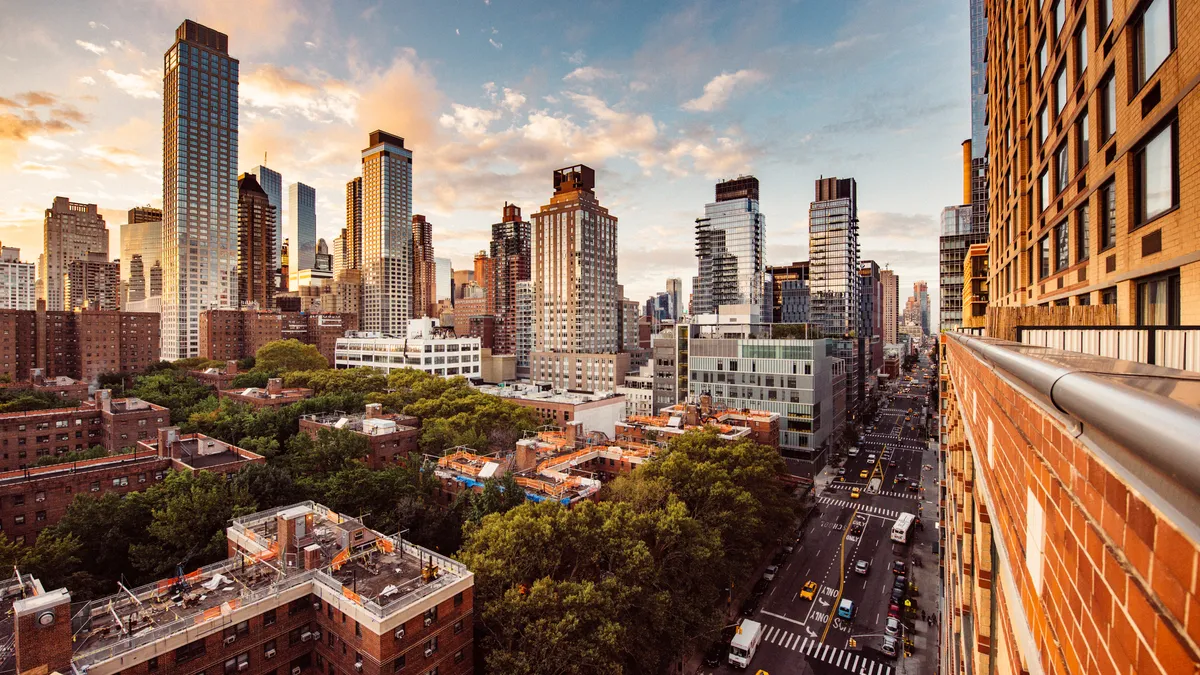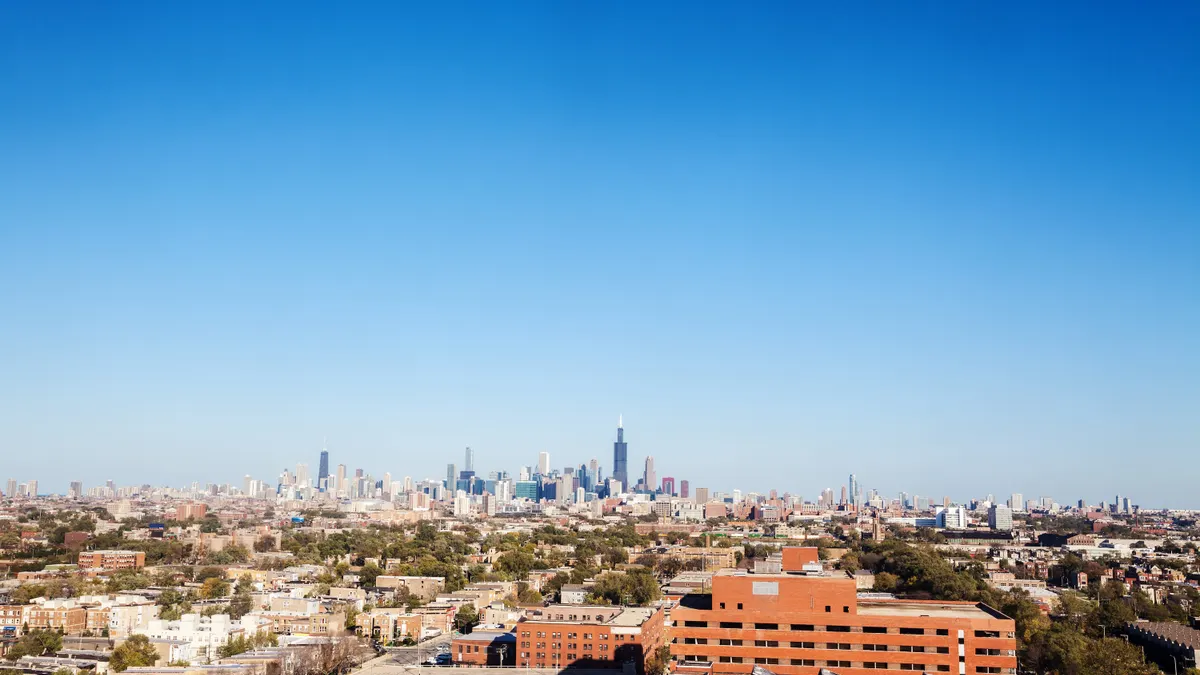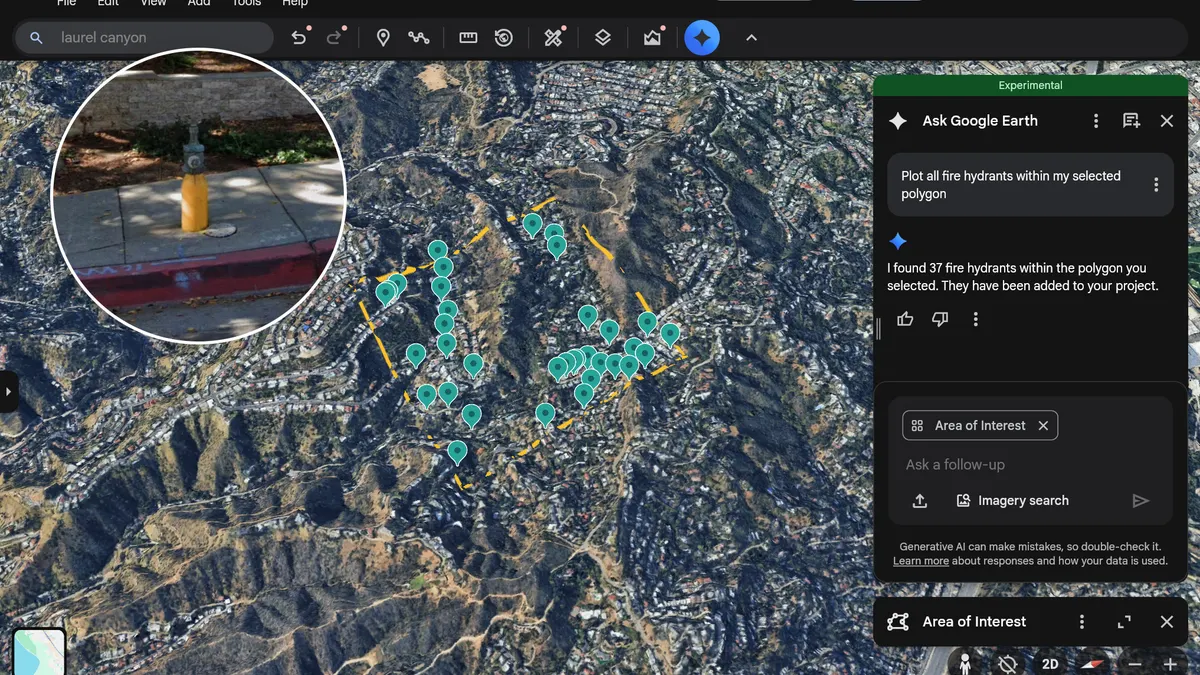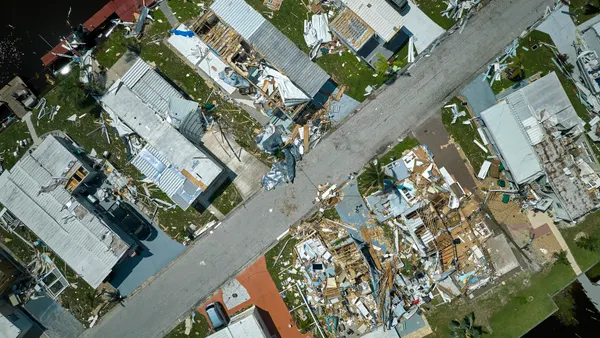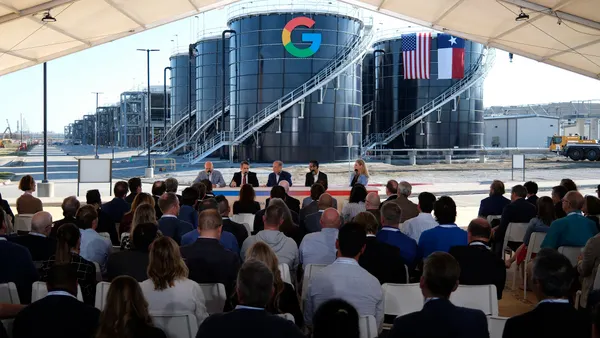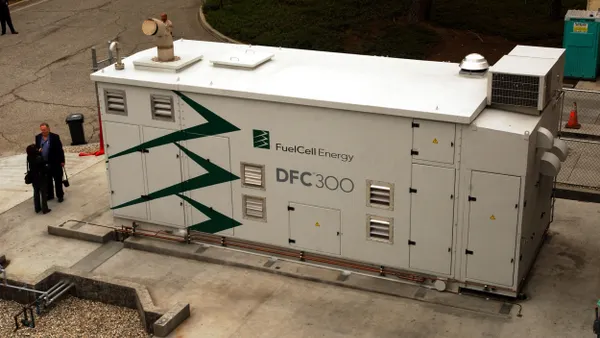Dive Brief:
- Smart cities startups have until April 30 to apply for the QBE AcceliCITY Resilience Challenge, the fifth annual global competition from Boston-based nonprofit Leading Cities and global insurance firm QBE North America.
- This year's contest offers a smart tech, resilience and sustainability track with a $100,000 grand prize for the “solution of the year” and two regional prizes of $25,000. Semifinalists will receive a free membership to a virtual incubator and coworking space.
- Applicants for the urban food track will compete to work with the city of Gainesville, Florida, on a tech-oriented pilot project that fosters innovation in food management, particularly efforts that reduce food waste.
Dive Insight:
From climate change to the coronavirus, startups have helped cities tackle key challenges as they strive to become more resilient places to live.
Startup Biobot Analytics, for example, has used its wastewater epidemiology technology in cities to analyze sewer systems for the coronavirus. Cleantech startup SparkCharge – a fall 2021 cohort member of the Los Angeles Cleantech Incubator – is pioneering a portable EV charging system.
“Startups have a leading role to play,” said Leading Cities President and CEO Michael Lake. “The level of impact they can have is really determined by how wide the door is open to them [and] how willing a city is to be innovative.”
The 2021 QBE AcceliCITY Resilience Challenge winner was Pharem Biotech, which works to remove hazardous organic pollutants, including pharmaceutical waste, from rivers, lakes, and drinking water. The 2020 winner was Spain-based green electricity startup Bioo which produces electricity from organic decomposition and makes plants operate as electrical switches.
For this year's competition, the judges will select 50 semifinalists by June to participate in the program’s web-based business-to-government tech accelerator curriculum. They will attend webinars held twice a week led by smart city, government and business leaders on a range of industry topics and receive one-on-one entrepreneurship mentoring.
In September, judges will select 10 to 15 finalists based on the quality of their business plan, financial models, pitch and pilot proposal. Those finalists participate in a virtual boot camp and final pitch competition.
The program comes as the federal government has put a spotlight on smart city investments. From the top, there's been a real openness to innovation, according to Lake, particularly as cities have received an infusion of capital from the American Rescue Plan Act.
To date, many cities have spent ARPA dollars on budget stabilization, public health investments, infrastructure improvements, housing solutions and support for local entrepreneurs and economies. Some of those investments have included creative or resilient solutions like creating clean energy jobs or launching universal basic income programs.
“In addition to filling holes, [ARPA funds] also helped us to be creative, to address what we knew would be looming challenges with this pandemic,” San Jose, California, Mayor Sam Liccardo said in an earlier statement.
Cities have finally realized that smart city innovations are no longer considered nice-to-haves, they are must-haves, Lake said.



